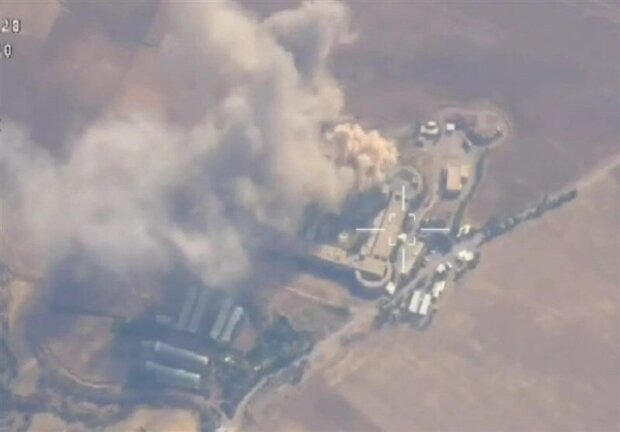The cessation of attacks came after the IRGC decided to give the Iraqi Kurdish officials a chance to expel and disarm the groups, according to a Tasnim report. Citing an informed source, Tasnim said, “The IRGC attacks have come to a halt after the pre-determined targets were destroyed. The continuation of the attacks will depend on the future behaviors of the officials of Iraq’s northern region.”
“The region’s officials make a wise decision and prevent the malice of anti-Iran separatist groups, this ceasefire will continue. Otherwise, the IRGC will resume its operations against counterrevolutionary terrorist groups. In this regard, it reserves the right to how to conduct the operations,” the news agency added.
It said the officials of Iraqi Kurdistan have been warned that the responsibility for injuries incurred by any regional and consular officials visiting the headquarters of the terrorist groups will lie with them.
The IRGC Ground Forces began a campaign of heavy missile strikes on September 24 against the bases housing Iranian Kurdish terrorist groups in Iraqi Kurdistan. The attacks lasted for several days and involved missiles and drones.
On Sunday, the representative of the Kurdish Regional Government of Iraq to Iran, Nazem Dabbagh, said that the KRG will move to assuage Iranian concerns regarding the presence of Iranian Kurdish groups in Iraqi Kurdistan.
In an interview with Iran’s state news agency IRNA, Dabbagh said a joint Iran-KRG security committee held several meetings in Tehran and Erbil over the last weeks in which it was underlined that “Iranian Kurdish opposition groups must not engage in armed activity or training inside the Iraqi Kurdistan. “And we witnessed the cessation of these groups’ activities for a while until incidents broke out inside Iran in recent days,” Dabbagh said.
Dabbagh noted that in the meetings between Iranian and KRG officials, it was reiterated that the headquarters of the Kurdish groups in KRG should be evacuated.
“The Kurdistan Regional Government has always stated that it will not allow actions against the security of neighboring countries to be carried out from the territory of this region, and we have mentioned this issue to the Iranian Kurdish opposition groups as our strategic policy,” he emphasized.
Dabbagh noted, “Iranian Kurdish opposition groups have been present in the Kurdistan region for decades and we have been able to control their activities to some extent and adhere to the agreements, but unfortunately some groups and individuals sometimes abuse the situation. And when they face our warning or Iran's reaction, their movements stop.”
He vowed, “If the Iranian Kurdish groups do not adhere to the agreements and do not pay attention to the warnings about avoiding armed activities against Iran, the Government will definitely take a serious decision about them this time.”
By Mehran Shamsuddin
First published in Tehran Times

























Your Comment